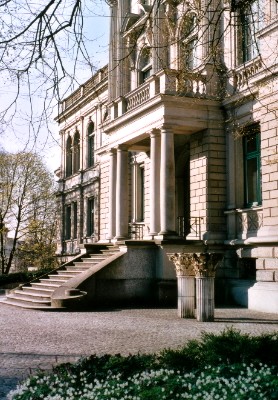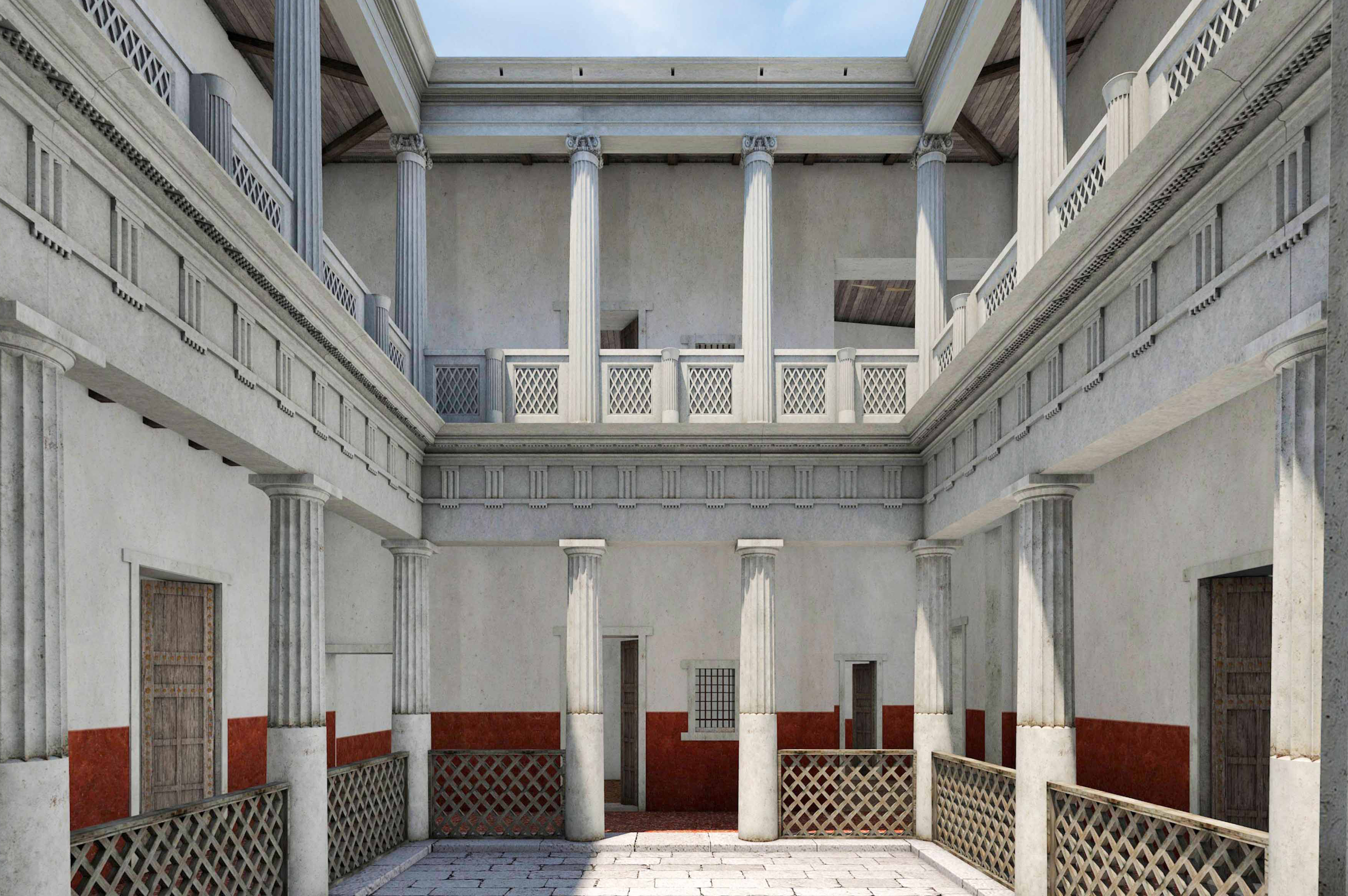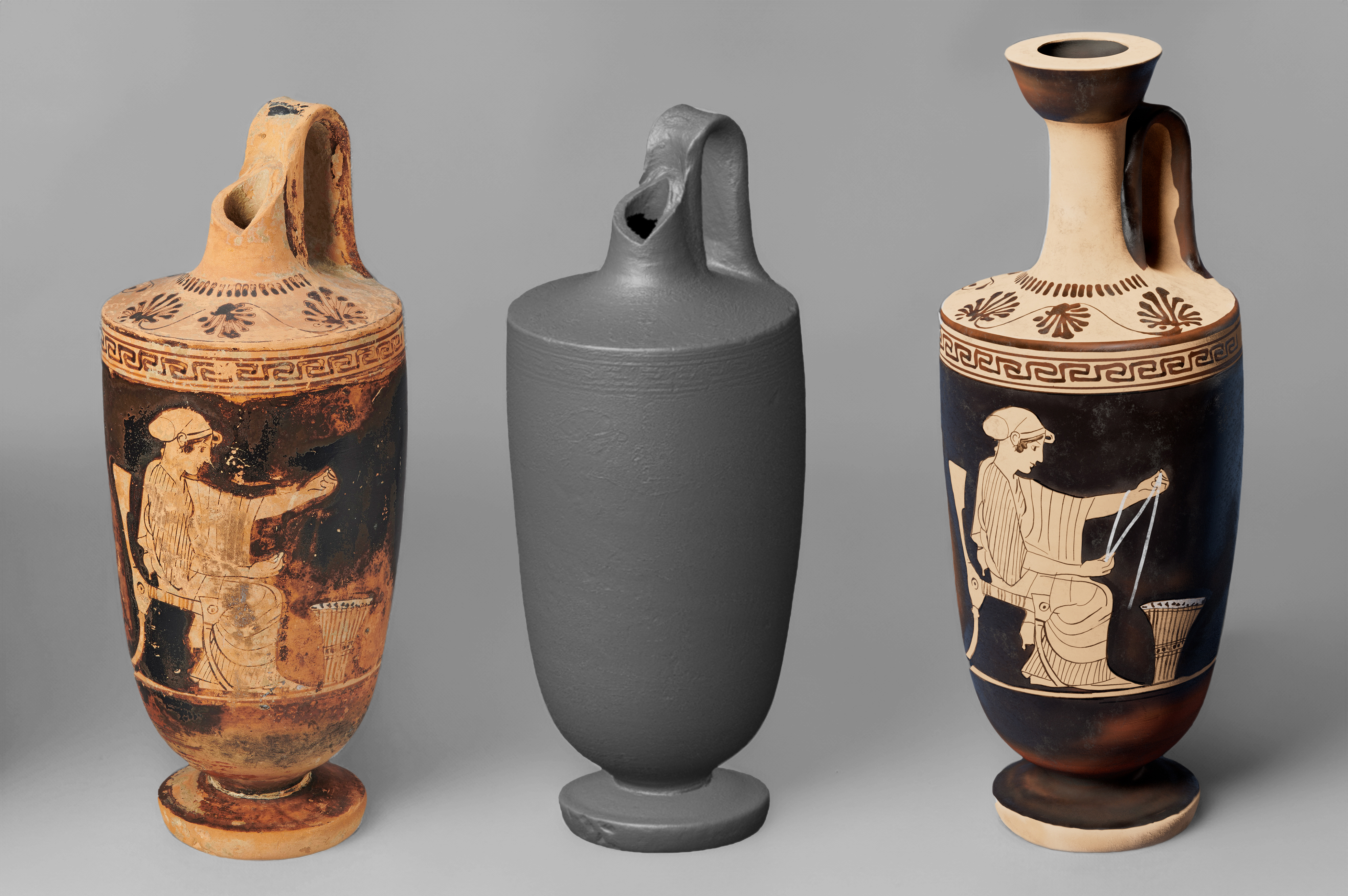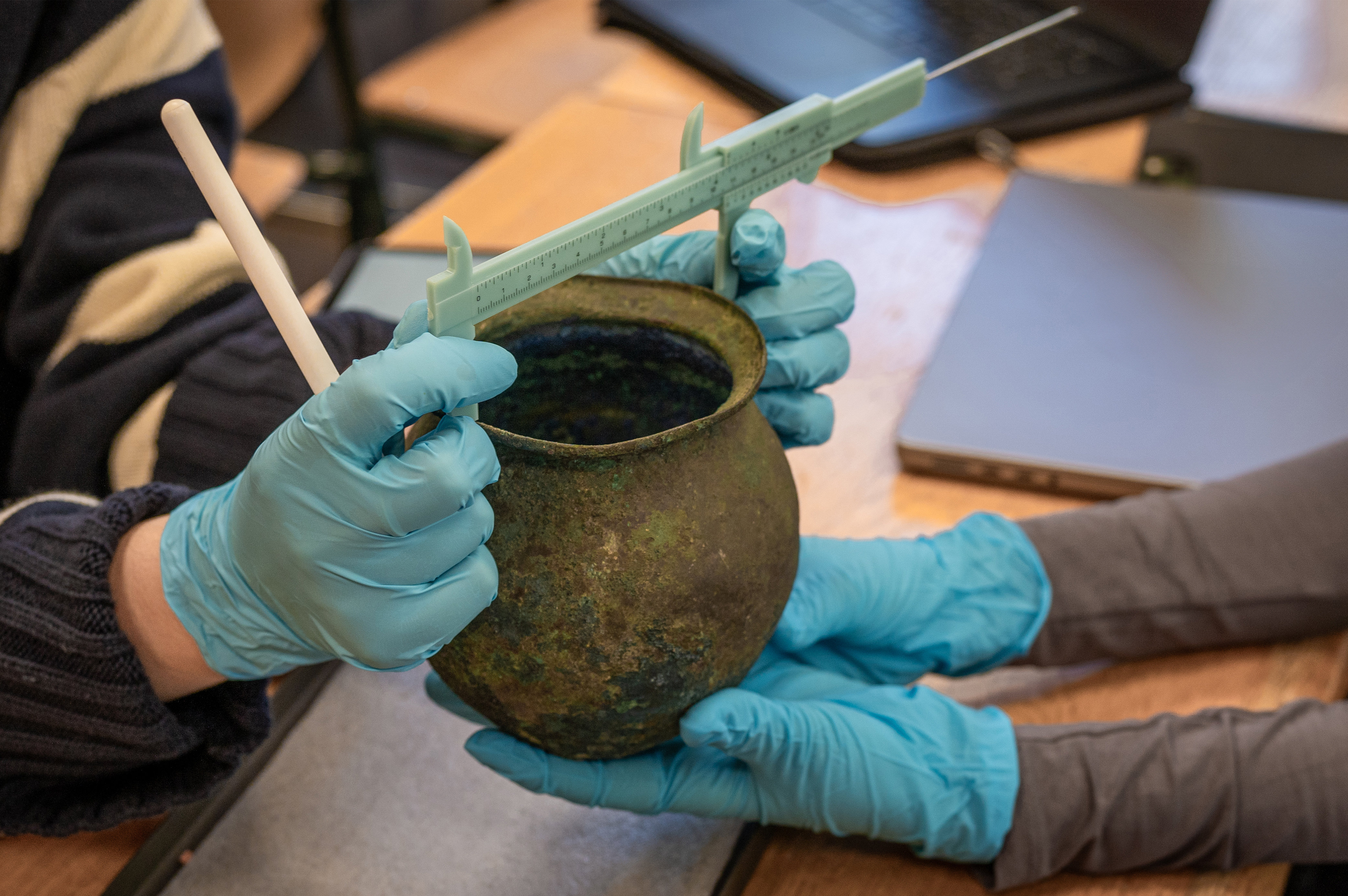Classical Archaeology Division
Table of contents
Research

The Division for Classical Archaeology at the University of Zurich fosters an open and creative approach for researching and teaching visual and material cultures of the Mediterranean during Greek and Roman antiquity. We seek to embrace a wide range of methodologies and perspectives, with a strong emphasis on interdisciplinary dialog within ancient studies and beyond, including collaborations with fields like computer science and digital humanities.
A key focus of the Classical Archaeology division is the integration and development of digital tools, such as artificial intelligence, for the study of ancient visual cultures and digital visualization-techniques (Corinna Reinhardt). This is further enhanced by the contributions of our senior assistant for digital archaeology, Eythan Levy, whose research centers on chronological modeling.
An important pillar of our research is the long-term fieldwork project at Monte Iato in Sicily (Iaitas/Ietas). The project is embedded within numerous international and interdisciplinary collaborations, with our on-site expertise and infrastructure serving as a dynamic research platform for a wide range of topics. Under the supervision of Martin Mohr, annual campaigns – whether excavations or material studies – are conducted with findings regularly published. The current research primarily focuses on investigating the chronology of urbanization processes around the ancient agora. Students and researchers at all levels are actively engaged in fieldwork, participating in excavation campaigns, and contributing research. For example, Agata Guirard is examining the transormation processes in the sacred topography of Iaitas/Ietas as part if her PhD dissertation. Meanwhile, Alexandra Tanner is focusing on architectural research specifically studying the so-called north hall complex and the structural development of the Agora. In their recently completed PhD-dissertations, Sabrina Fusetti has extensively studied the archaic-indigenous pottery and Eleonora Bechi produced the first study of the decorated walls and floors in sacred and public builidings.
Additionally, our team enriches the division's profile with various research foci:
The projects of Christina Leypold, Johannes Eber, and Kallirroi Polymenidou center around cult and religious archaeology, specifically on artifacts that shaped religious sites. Their research focuses on areas such as the contextualization and communicative functions of statue arrangements in sanctuaries (Christina Leypold), various aspects of Roman (domestic) cult using theories and methods of sensory archaeology (Johannes Eber) and the thransdisciplinary linkage between archaeology and religious studies (Kallirroi Polymenidou). Corinna Reinhardt also explores the ritual use and staging of picotrial artefacts through Hellenistic terracotta figurines.
At our institute, two scholars are currently conducting in-depth research on the ancient genre of herms. Caterina Schorer, in her dissertation, and Regina Hanslmayr, as an associated researcher, are exploring different aspects of these artifacts. Their work examines the medial potential of herms as well as their function as religious motifs. Central to their research are questions surrounding how texts and images are conceptualized, used, and perceived by contemorary audiences.
The doctoral projects of Samuele Cambianica and Sophie Preiswerk address qestions related to production processes and artifact ontology in Etruria during the Hellenistic period and Archaic Greece respectively. Their fields of work include practies of motif transfer on Etruscan cinerary urns (Samuele Cambianica), as well as technological choices and material- or culturally specific forms of relief work by Greek craftsmen (Sophie Preiswerk)
Hristina Ivanova-Anaplioti contributes numismatic expertise to the department. She is working on the significance of coins for border demarcation processes in Macedonia during the Roman Republic.
We are also interested in questions regarid the afterlife of antiquity and its reception in the 19th century (Corinna Reinhardt), as well as histories of collections and their interconnections between research and society. For example, Jaqueline Koller's doctoral thesis focuses on the history of the UZH Archaeological Collection from its foundation in the 19th century through to the 20th century.
Regular exchange and discussion are central to our division, enabling us to identify synergies and engage in discussion on shared questions.
Study and Teaching
The department offers core courses in Greek and Roman archaeology. The study program includes excursions to museums and archaeological sites both domestically and internationally. We foster a hands-on education through our field research project at Monte Iato, Sicily, as well as through the extensive UZH Archaeological Collection, each featuring dedicated teaching modules in the curriculum. Additionally, regular courses provide practical insights into areas such as photography, restoration, digital documentation, visualization and "Bauforschung".
To accomodate individual interests and develop,ents, we offer opportunities for in-depth involvement in various projects, especially at master's level. Promoting exchange between students and facutly through courses and various extracurricular initatives, along woth personalized advising, are key priorities at our division.
Further information on the study program (in German) can be found here.
Archaeological Collection
We also maintain a close partnership with the UZH Archaeological Collection, collaborating on various research, exhibition, and teaching initatives involving both ancient originals and plaster casts.
People
- Academic Staff (in German)
- Administrative Staff (in German)


